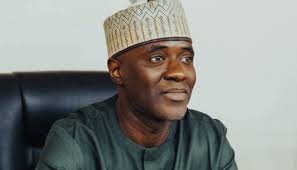The Nigerian Communications Commission (NCC) has announced the availability of the six-gigahertz (GHz) spectrum band to network providers in a bid to address the country’s ongoing network outages and congestion issues, while freeing up additional spectrum for increased technology needs. This decision was revealed during the regulator’s Stakeholders’ Consultative Forum on Emerging Technologies, where it was noted that Nigeria faces over 1,600 fiber cuts and more than 500 network outages monthly, impacting over 83 million users annually.
Given the slow progress in fiber deployment since the telecom revolution began 23 years ago, the presentation emphasized the necessity for long-haul microwave links as a backup for these disruptions. To mitigate these challenges, the telecoms regulator will join the ranks of countries utilizing the 6GHz band for Wi-Fi 6 applications and International Mobile Telecommunications (IMT).
Atiku Lawal, Acting Head of Spectrum Administration at the NCC, highlighted that the overcrowding of airwaves in the 2.4GHz and 5GHz bands limits Wi-Fi potential, prompting over 70 countries to consider the 6GHz band for unlicensed Wi-Fi use. “Capacity in the unlicensed use of the 6GHz band for Wi-Fi will improve Quality of Service (QoS) through Wi-Fi 6 offload,” he stated. This shift will allow devices in homes, offices, and public spaces to relieve congestion on cellular networks.
The 6GHz spectrum offers substantial bandwidth for multi-gigabit speeds, essential for high-speed internet access. Aminu Maida, Executive Vice Chairman of the NCC, noted that the 2023 World Radiocommunications Conference (WRC-23) allocated this band for Wi-Fi and IMT applications. “The 6GHz band, spanning from 5925 MHz to 7125 MHz, is crucial for meeting the increasing demand for high-speed internet and advanced applications,” he explained.
Caroline Alenoghena, a professor of Telecommunications Engineering at the Federal University of Technology in Minna, highlighted that the 6GHz band could significantly enhance wireless capacity and reduce network congestion, ultimately helping to close the digital divide in rural areas. Tony Emoekpere, President of the Association of Telecommunications Companies of Nigeria (ATCON), called the 6GHz band a vital asset for future telecommunications growth, particularly as demand for high-speed connectivity continues to rise.
However, implementing services on the 6GHz band will require substantial investments in upgrading mobile networks and Wi-Fi infrastructure. Emoekpere remarked, “Telecom operators and Internet Service Providers (ISPs) must have the capacity to absorb this new technology.”
Alenoghena added, “The deployment of 6GHz technology requires significant infrastructure upgrades, including new base stations, antennas, and fiber optic cables.” These upgrades may be hindered by financial constraints, as operators face economic challenges impacting their businesses.
NCC’s new spectrum plans comes amid declined investments in the industry, foreign exchange instability and regulatory-side digital hurdles including multiple taxation and right of way issues.
Gbolahan Awonuga, executive secretary of the Association of Licensed Telecoms Operators of Nigeria (ALTON), emphasized the need for funding to upgrade infrastructure. “We need money to upgrade our infrastructure and import equipment to benefit from the 6GHz. Our members are struggling to expand their infrastructure,” he noted.
To fully leverage the 6GHz band, Emoekpere called for policies that encourage public-private partnerships, reduce Right of Way (RoW) charges, and streamline regulatory processes to facilitate infrastructure expansion. He added, “Supporting smaller, local ISPs, who may not have the financial capacity to compete for high-cost licensed spectrum, will encourage their growth and significantly enhance broadband penetration in underserved and rural areas.

At the recent Hyperscalers Convergence Africa conference, the government was urged to foster an enabling environment for businesses and investors, improving connectivity for low-income earners and bridging the digital divide. This initiative includes supportive policies, regulations, and subsidies for low-income individuals. Establishing stable government conditions will attract Development Finance Institutions (DFIs) to invest, while effective collaboration among regulatory bodies and operators will be crucial for advancing these goals.




